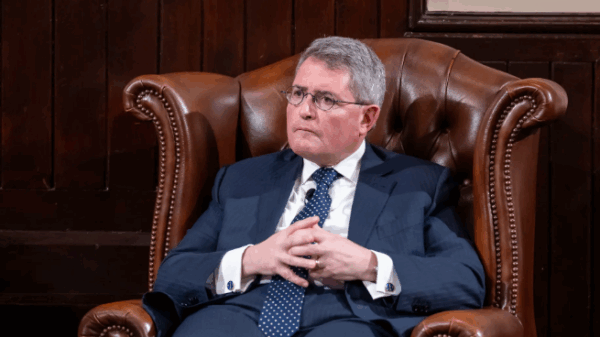Senator Raphael Warnock begins his day in the U.S. Capitol with a moment of reflection. As he enters his office on the fourth floor, he often finds himself questioning whether he is sleepwalking. After all, when Warnock was born, there had only been one Black senator elected since Reconstruction. His home state of Georgia had never sent someone who looked like him to the upper chamber of Congress. A first-generation college graduate and the 11th of 12 children born into a family that relied on programs like Head Start, Warnock’s journey to the Senate is far from typical.
As Warnock makes his way to his office, he passes a statue of the man after whom the office building is named — a staunch segregationist from Georgia. Despite this historical reminder, Warnock, 55, has used his position in the Senate to work tirelessly toward racial equity. This legislative session has seen a record number of Black lawmakers, with Warnock standing at the forefront of efforts to close racial gaps in areas like health care and agriculture.
Despite the challenges of working in a deeply polarized Congress, Warnock has achieved notable successes. He secured recovery funds for Georgia’s Black farmers, who have long been excluded from federal aid, following the devastation of Hurricane Helene. He has also been a key advocate for capping the costs of insulin for seniors and increasing funding for diabetes research, a disease that disproportionately affects Black Americans. Looking ahead, Warnock is focused on expanding insulin price caps to cover more Americans and renewing tax breaks for families with children.
Warnock’s legislative agenda is deeply rooted in his experience as the senior pastor of Ebenezer Baptist Church in Atlanta, where Dr. Martin Luther King Jr. once preached. It’s also why his colleagues on Capitol Hill often refer to him as “The Reverend Senator Warnock” with respect, not irony. Each Sunday, he continues to preach from the same pulpit that King once stood at, drawing on his spiritual and moral beliefs to inform his work in the Senate. Warnock believes that investing in children, especially those from poor backgrounds, strengthens the future of the nation and ensures that the 21st century can be just as prosperous as the 20th.
Though politics may now define his career, Warnock never intended to enter this field. He had never set foot inside a Capitol Hill building until the first Trump Administration, when he traveled to Washington to protest tax cuts that he believed would harm health care and farm subsidies. Warnock was arrested in 2017 for praying in the Capitol Rotunda with other clergy members.
Now serving on the Agriculture Committee, he chuckles at the irony. “I was an activist fighting for a better farm bill, and got arrested doing so. Now, I’m helping to write the farm bill,” he says, though he acknowledges progress is slower than he’d like. Nevertheless, Warnock remains determined to work toward a fairer, more equitable future for all Americans.








































